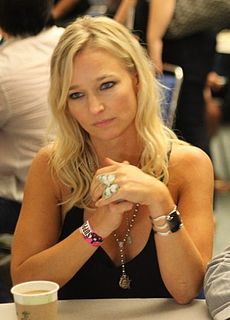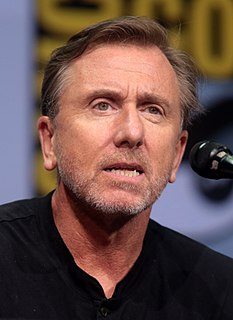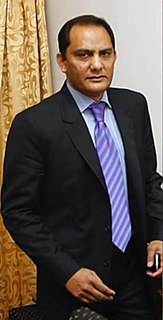A Quote by Karla Souza
I should have asked for credit - but he has no idea how amazing it is that a character that was written as a boy can be equally written for a girl. It's like you said, just write a character as if it were a man, and then turn it and make it into a woman. It's like, we're human beings, after all.
Related Quotes
I've written so many things over the years that I don't want to go back to being just a scriptwriter. I'm in what I consider to be the enviable position of all I have to do is come up with the idea and write an outline that makes it seem like it's a viable idea that will interest people, and then other people write the scripts -- and I become the executive producer or the producer, depending on how much involvement I have, and I get a creative credit and then move on to the next project.
Character: The ability to carry out a worthy decision after the emotion of making that decision has passed. Character simply stated is doing what you said you were going to do. If you develop a reputation for that, do you have any idea the effect that has on self-perception? Its immense, just immense. The Savior was a man of character. He did everything he said he was going to do.
I don’t mind if the character is a small character, but I would just like her to have a journey in the film. Sometimes the characters are just there as a prop to further the man’s story. The great directors I’ve talked to, I’ve said listen, I don’t mind playing a woman that is a tiny part, but how does the story affect her? What can I play in the end that’s different from the beginning? Otherwise, it doesn’t make sense, because it’s just like being a prop.
I told my friend - we were working on a movie together - and he gave me a script and asked me to give him notes. And they were all male characters, and I said, "You know what would make this character more interesting?" And he asked what - and it's this road trip between three guys, basically, one older man, one 30-year-old and a 13-year-old mechanic. And I said, "If you make the 13-year-old a girl, and you make her an Indian-American mechanic." And he said, "What do you mean?" And I said, "Yeah, don't change anything in the script about him, and just make it a her."
When something arrives, you have no idea what's in it, which is good. And then, it's is the story leaps off the page at you and how your character functions within it. There could be just one scene and if it's wonderful, it doesn't matter how much you're working on it because you just want to be in it. It's really about what your character's day to day world looks like, and if you feel like that's something that's complete, and that you'd like to inhabit for awhile. You'll know by a couple of scenes in. If the character grabs you, you run with it.
The trouble with the jokes is that once they're written, I know how they're supposed to work, and all I can do is not hit them. I'm more comfortable improvising. If I have just two or three ideas and I know how the character feels, what the character wants, everything in between is like trapeze work.
I never felt like a happy-go-lucky ingenue to begin with. And parts are written better when you're older. When you're young, you're written to be an ingenue, and you're written to be a quality. You're actually not written to be a person, you're written for your youth to inspire someone else, usually a man. So I find it just much more liberating.
Once, during an interview in front of my wife, I was asked, "Are you one of those actors who brings your character home? Do you stay in character?" I said, "No, not really. I don't do that," and she started laughing. I asked her why. She said, "Well, you might think you don't bring characters home, but you do." So, while I don't feel like a character is lingering, it probably is.
I'm thinking like the character in order to be as authentic as I can. But after a while, how would I be able to cleanse myself from this unless I do something that's a different medium but also creative. That's what I do. It's my little ritual. After every filming, I just write a poem about it and my character specifically and I can let her go.
































